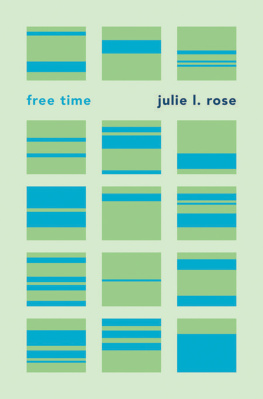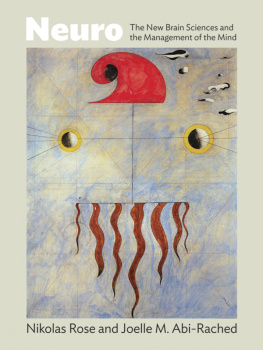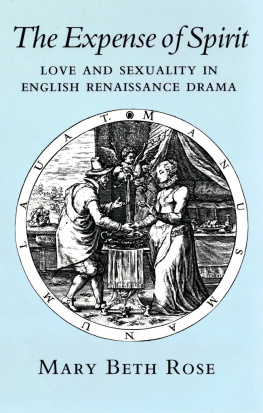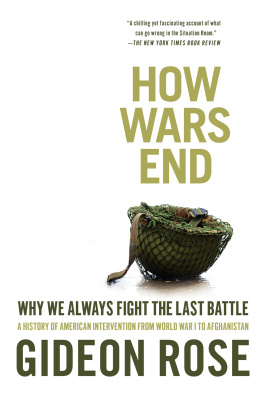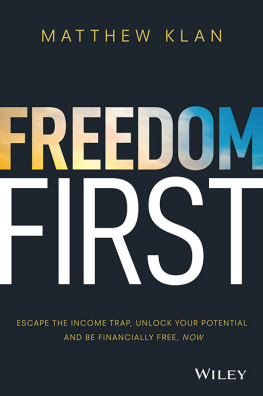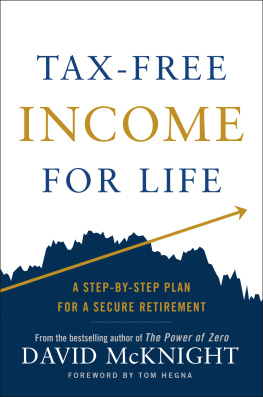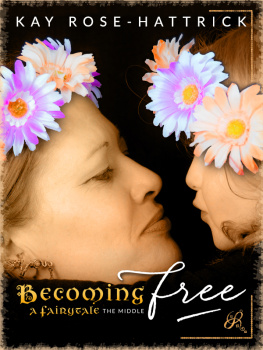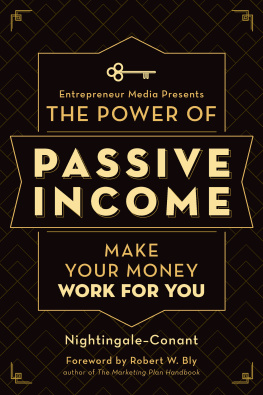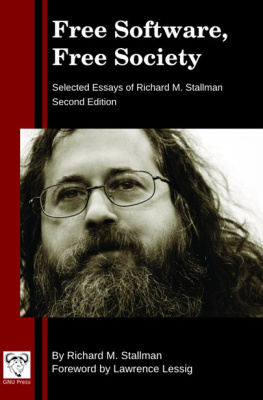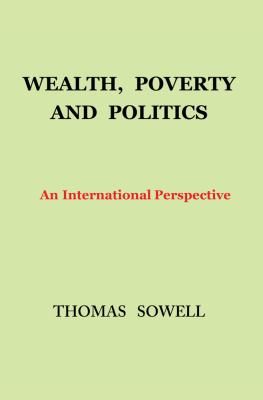Rose - Free Time
Here you can read online Rose - Free Time full text of the book (entire story) in english for free. Download pdf and epub, get meaning, cover and reviews about this ebook. City: Princeton, year: 2018;2016, publisher: Princeton University Press, genre: Politics. Description of the work, (preface) as well as reviews are available. Best literature library LitArk.com created for fans of good reading and offers a wide selection of genres:
Romance novel
Science fiction
Adventure
Detective
Science
History
Home and family
Prose
Art
Politics
Computer
Non-fiction
Religion
Business
Children
Humor
Choose a favorite category and find really read worthwhile books. Enjoy immersion in the world of imagination, feel the emotions of the characters or learn something new for yourself, make an fascinating discovery.
Free Time: summary, description and annotation
We offer to read an annotation, description, summary or preface (depends on what the author of the book "Free Time" wrote himself). If you haven't found the necessary information about the book — write in the comments, we will try to find it.
Free Time — read online for free the complete book (whole text) full work
Below is the text of the book, divided by pages. System saving the place of the last page read, allows you to conveniently read the book "Free Time" online for free, without having to search again every time where you left off. Put a bookmark, and you can go to the page where you finished reading at any time.
Font size:
Interval:
Bookmark:

FREE TIME
FREE TIME
JULIE L. ROSE
PRINCETON UNIVERSITY PRESS
PRINCETON AND OXFORD
Copyright 2016 by Princeton University Press
Published by Princeton University Press,
41 William Street, Princeton, New Jersey 08540
In the United Kingdom: Princeton University Press,
6 Oxford Street, Woodstock, Oxfordshire OX20 1TR
press.princeton.edu
All Rights Reserved
ISBN 978-0-691-16345-1
Library of Congress Control Number: 2016944395
British Library Cataloging-in-Publication Data is available
This book has been composed in Sabon Next LT Pro
Printed on acid-free paper
Printed in the United States of America
10 9 8 7 6 5 4 3 2 1
FOR MY FAMILY,
AND FOR HERSCHEL
CONTENTS
ACKNOWLEDGMENTS
I have benefited immensely from the support of many people and institutions while writing this book, and I am grateful to have the opportunity to acknowledge them here. While any remaining errors are my own, the book is much better for their generous help. The book began at Princeton University in the Department of Politics and Program in Political Philosophy, where I received the support of the University Center for Human Values. Charles Beitz has been a truly wonderful advisor from the inception of this project, and I am tremendously grateful to him for his clear-sightedness and wisdom, on matters great and small, throughout. Melissa Lane, a constant source of encouragement and support, immeasurably helped the project with her wide-ranging contributions and me with her generous mentorship. Alan Patten provided exceptionally incisive comments at each stage, and my argument, from its foundations to extensions, has been shaped to a remarkable degree by my attempts to meet his objections. Stephen Macedo served as an ideal examiner, and I am grateful for his insightful comments and generous support throughout and beyond this project. Philip Pettit provided excellent advice throughout, and especially in the important early stages.
I was fortunate to spend two postdoctoral years in the stimulating intellectual communities of Brown Universitys Political Theory Project and Stanford Universitys McCoy Family Center for Ethics in Society. I am especially grateful to John Tomasi, Debra Satz, and Rob Reich for their invaluable support and guidance. Dartmouth College has been the ideal place to revise and complete the manuscript, with welcoming and encouraging colleagues in the Government Department and friends in the Philosophy and Economics Departments.
Special thanks are due to those who read versions of the full manuscript. Lucas Stanczyk and Rob Reich provided careful and insightful comments as part of a book manuscript workshop generously sponsored by the John Sloan Dickey Center for International Understanding at Dartmouth. Lucas Swaine, James Bernard Murphy, Michelle Clarke, Russell Muirhead, Sonu Bedi, and Ira Lindsay also provided immensely helpful comments and conversations as part of, and beyond, the workshop. John Tomasi and, at his generous insistence, the excellent students in our Labor and Leisure graduate seminar at Brown provided encouraging comments on an early draft.
Many more people than I can list have contributed to this book with illuminating comments, questions, and conversations. I am especially grateful to Samuel Arnold, Michael Bittman, Brookes Brown, Robert Goodin, Alex Gourevitch, Alex Levitov, Eric MacGilvray, Kristi Olson, Jakob Reckhenrich, Liam Shields, Seana Valentine Shiffrin, Jeff Spinner-Halev, Anna Stilz, and James Lindley Wilson for providing comments on portions of the manuscript, and to Douglas Bamford, Eric Beerbohm, Michal Ben Noah, Brian Berkey, Corey Brettschneider, Thomas Christiano, Sarah Cotterill, Alexander Duff, David Estlund, Stephen Galoob, Javier Hidalgo, Dana Howard, Brian Hutler, Benjamin McKean, James Morone, Sara Mrsny, Jennifer Nedelsky, Anne Newman, Martin ONeill, Thomas Parr, Govind Persad, Georg Picot, Jeppe von Platz, Jonathan Quong, Christian Schemmel, Laurie Shrage, Hillel Steiner, Timothy Syme, and Liza Williams for particularly helpful exchanges. I am also grateful to Mark Budolfson, Jorah Dannenberg, Ryan Davis, Loubna El Amine, Sandra Field, Jessica Flanigan, Jeffrey Friedman, Paul Frymer, Sarah Goff, Burke Hendrix, Keith Hernandez, Yonatan Herzbrun, Amy Hondo, Rob Hunter, Trevor Latimer, Marialanna Lee, Lida Maxwell, Matthew McCoy, Alison McQueen, Evan Oxman, Mariah Pfeiffer, Chris Ro, Genevieve Rousseliere, Tamar Schapiro, Kathryn Schwartz, Neil Shenai, Claire Shields, Patrick Taylor Smith, Hillel Soifer, Lauri Thtinen, Philip Wallach, Oscar Westesson, Casey Williams, and Thomas Youle for their conversation, support, and friendship.
I have been fortunate to present portions of the book at various points to audiences at Princeton University, Harvard University, Brown University, Stanford University, Dartmouth College, the University of Manchester, the University of California, Los Angeles, Massachusetts Institute of Technology, the University of Pennsylvania, and Texas Christian University, as well as at meetings of the American Political Science Association, New England Political Science Association, Law & Society Association, Western Political Science Association, and Midwest Political Science Association. The comments and questions from these audiences were tremendously helpful.
was previously published as Freedom of Association and the Temporal Coordination Problem, Journal of Political Philosophy 24 (2016): 26176.
I am very grateful to Rob Tempio for his encouraging support of this book from an early stage and his patient shepherding since, to those with Princeton University Press who had a hand in bringing this project to completion, especially Joseph Dahm, Ryan Mulligan, and Jenny Wolkowicki, and to the Presss reviewers for their insightful and constructive comments.
I am also thankful to my undergraduate professors at Cornell University, Nick Salvatore, Isaac Kramnick, George Boyer, and Michael Gold, for showing me the quiet joys of an academic life, and giving me the confidence to pursue it for myself.
I am profoundly grateful to my familyto my grandparents, Sarah LaShomb, Marguerite Rose, and Pete Rose, and my extended Rose, LaShomb, Moskow, and Freedman-Weiss familiesfor their love and wisdom and for being a reminder of what really matters. Most especially, my parents, Susan and Michael Rose, and my brother, Phil Rose, have been a constant source of unconditional support, and my parents dedication, sacrifices, and values have, in many ways, inspired this project and my work.
Finally, my deepest debt of gratitude is to Herschel Nachlis, who has contributed to this book more than anyone, by sharing his advice on all points, providing unwavering support, and bringing me incredible happiness.
FREE TIME
CHAPTER 1
INTRODUCTION
1.1 HOURS FOR WHAT WE WILL
Many people, including in the contemporary United States, have little free time. They must spend long hours in paid work, household labor, personal care, and caregiving. They have little time to devote to any ends beyond meeting the necessities of life. This book argues that in the just society all citizens would have their fair shares of free time, time they could devote to the pursuit of their own projects and commitments.
As a matter of liberal egalitarian justice, all citizens are entitled to a fair share of free timetime not consumed by meeting the necessities of life, time that one can devote to ones chosen ends. Free time is a resource that citizens generally require to pursue their conceptions of the good, whatever those may be. Without the resource of free time, citizens lack the means to exercise their formal liberties and opportunities. In order to ensure that citizens can exercise their freedoms, a central commitment of liberal egalitarian theories of justice, citizens must be guaranteed their fair shares of free time.
Next pageFont size:
Interval:
Bookmark:
Similar books «Free Time»
Look at similar books to Free Time. We have selected literature similar in name and meaning in the hope of providing readers with more options to find new, interesting, not yet read works.
Discussion, reviews of the book Free Time and just readers' own opinions. Leave your comments, write what you think about the work, its meaning or the main characters. Specify what exactly you liked and what you didn't like, and why you think so.

